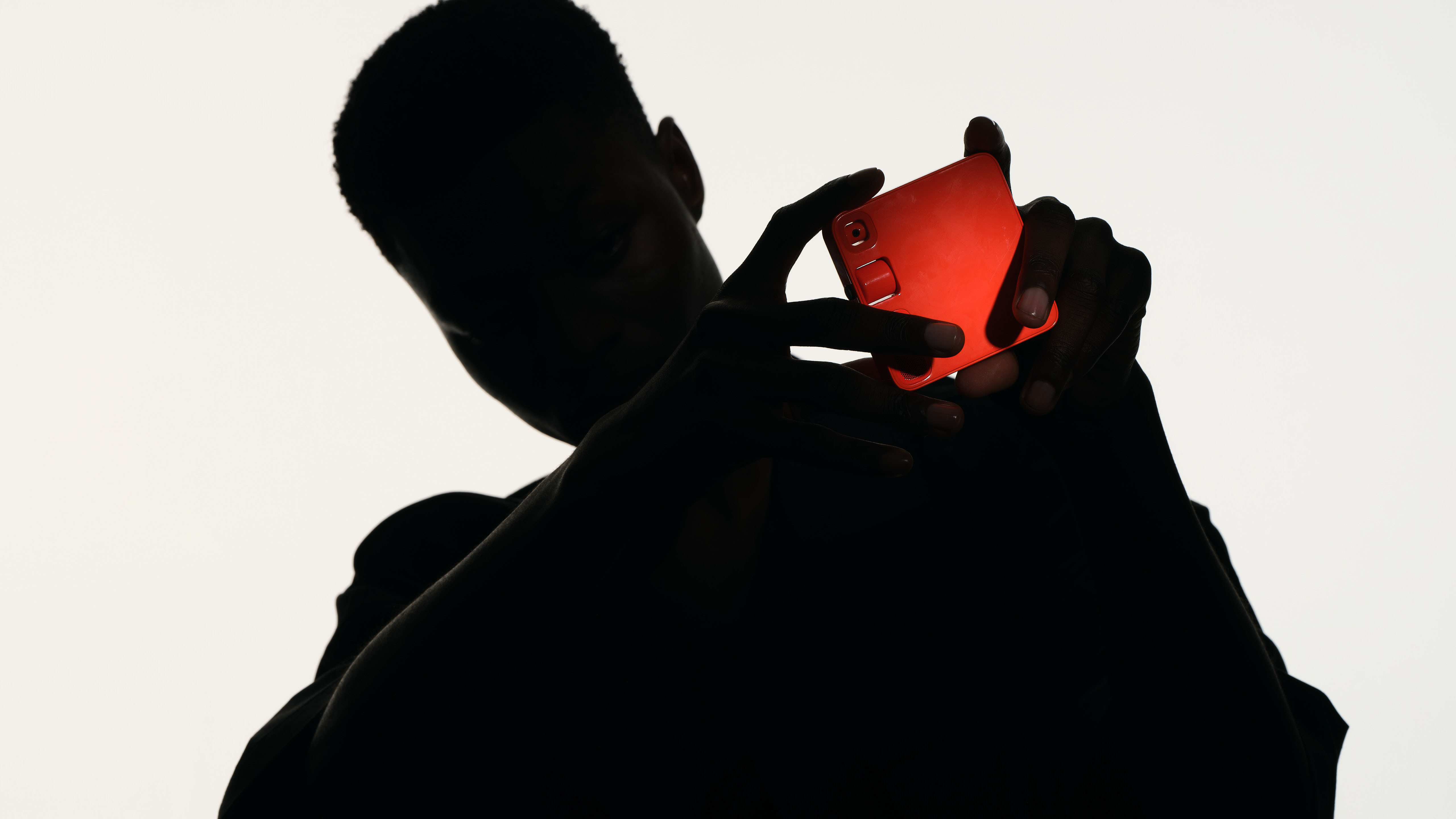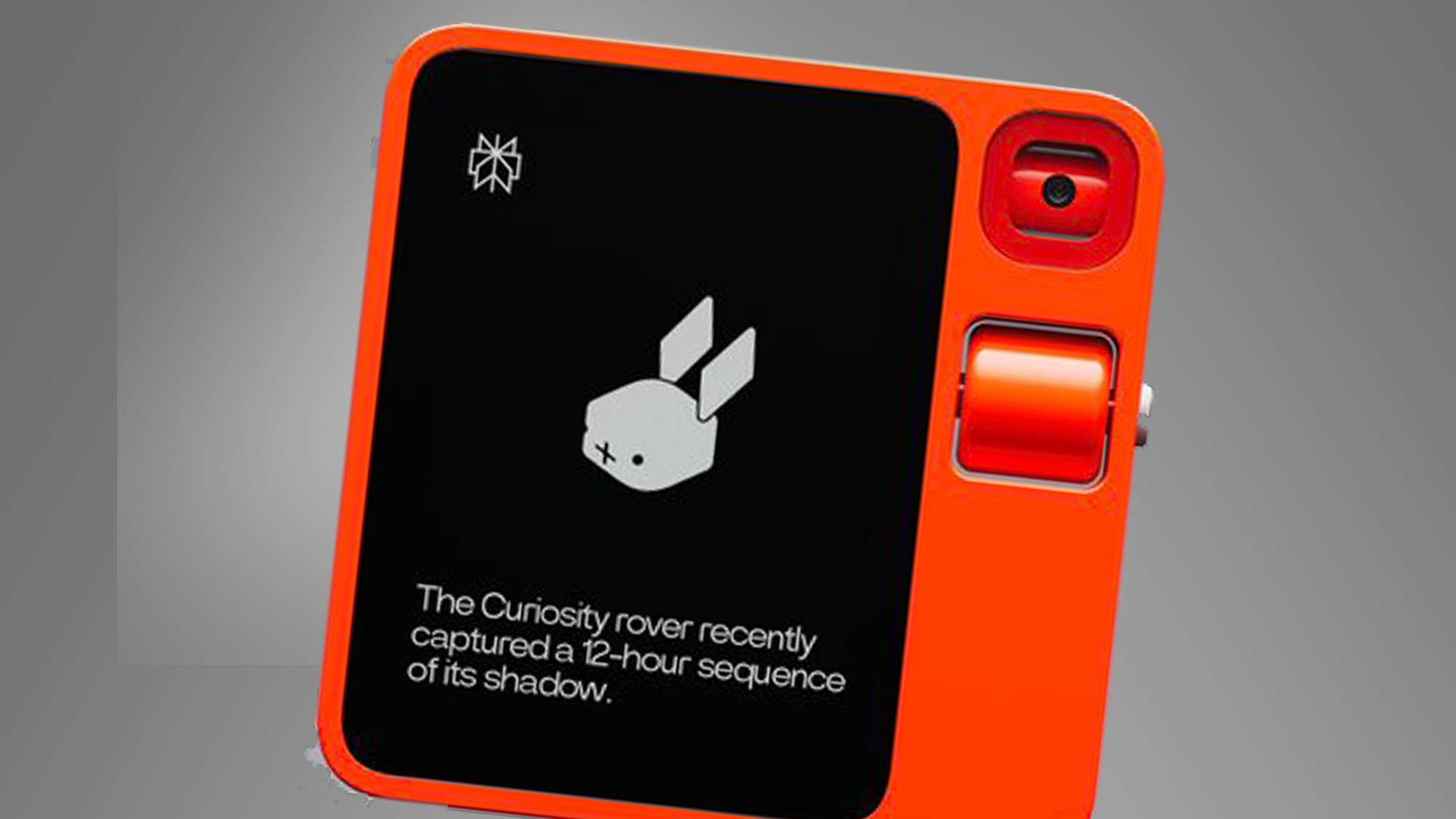rabbit returns: AI gadget maker takes on Sam Altman and Jony Ive in a race for AI device dominance
The r1 AI device evolves with powerful new agents for everyday use

Sign up for breaking news, reviews, opinion, top tech deals, and more.
You are now subscribed
Your newsletter sign-up was successful
When it first launched in April last year, reviews of the rabbit r1, the $200 walkie-talkie-like AI device that you can put in your pocket and take with you wherever you go, were less than glowing.
Reviewing the r1 for TechRadar in May 2024, Lance Ulanoff wrote, “rabbit r1 doesn't do enough to replace your smartphone or even operate as a decent companion. It's limited, and poorly thought out, and much of the magic it promises happens – slowly – in the cloud and then is delivered back to this underpowered orange product.”
The r1 always had potential, though. It could do a lot more than just use AI to answer the questions you asked it - it had a camera for identifying objects and taking pictures, for example, but support for multi-language translation was added in January 2025 along with custom voices, and a ‘teach mode’ was added back in November 2024, which enabled it to automate actions on websites.
In fact, the rabbit r1 has received over 30 updates to its software since launch, which have greatly improved its functioning. All this means that, while there hasn’t been a new version, it is quite a different product now to the one we first looked at back in 2024.
We’re over a year on from the initial launch of the rabbit r1 now, and unlike the other prominent AI mobile device of that era, the Humane AI Pin, which quietly vanished from sale, the r1 is still selling and being actively developed today.
What’s more, the company has just released a new AI agent called intern, which promises to bring agentic AI to everyone. I thought it was time to reach out to rabbit, and its CEO Jessie Lyu, to find out what’s going on with the company, and see what it has been up to.

The early days
Talking to Jessie Lyu, it’s clear he feels defensive about the initial press reaction to his beloved AI device and while he concedes that the r1 did have problems initially, particularly with things like battery life and speed, it also has an incredibly low return rate at below 5% on over 100,000 units shipped, indicating that customers are pretty happy with the device once they get it.
Sign up for breaking news, reviews, opinion, top tech deals, and more.
“If you go back to everything we said in the early days”, says Lyu, “we never tried to convince people that once you bought this $199 device, you were going to throw away your phone or iPhone. This was my biggest fear when we were discussing the launching strategy, because I don’t want people to compare it in that way."
"In the early days, the Humane AI Pin (another piece of AI hardware) guys said, 'this is replacing your phone', and then they later changed that. We never said that, and that’s why we decided to make this walkie-talkie form factor instead of making it look more like a phone.”
rabbit has not stopped innovating since bringing out the r1 device, and its constant software development has led it to create its groundbreaking AI agent that can be used through a web browser, called intern. Agents are like AI servants (or, in this case, interns) that can be put to work for you doing whatever task you ask them to do. In rabbit intern’s case, that could be making a website, an app, or simply booking you a meal at your favourite restaurant. If it can be done on the web, then intern can do it for you.
The path to intern started with the r1 device, though: “The r1 is the only device right now that has a built-in general web agent where you can go anywhere on the web and ask it to do things. A small example might be you can go to Amazon, save the cookies, and then say, ‘I’m running out of Diet Coke, get me another pack,’ and it can do it. You can’t say that to Siri and expect your Diet Coke to turn up at your front door the next day. You can’t do that on Google. You can’t do that on ChatGPT. You can’t do that anywhere else!”
Lyu isn’t worried about companies like Apple releasing Apple Intelligence and stealing the AI thunder because of the way rabbit has integrated agents into the functioning of the device.
“I don’t really believe that there’s another magic company that can start doing AI and not run into the problems that we’ve run into with the interface and fundamentally provide a next-level experience, because I truly believe that what we’re representing is the current level of the best AI can function.
We worked pretty early on the idea that the entire UI could be generated by AI. So, if you turn on generative UI in the settings, this is the only device that you can prompt to completely generate any interface using the AI in real time.
A lot of people have had a lot of fun with this feature. I’ve seen people with the whole r1 prompted to be like Windows 95, using vintage UI elements. Now, this wasn’t available on day one, but we knew that this would be happening on this platform. We knew that we were working towards this.”
A car engine on the back of a horse
According to Lyu, in contrast to the way the r1 works, Apple Intelligence was like “trying to put a car engine on the back of a horse”.
He explains:
“You ask a question to Siri and it either decides it’s a dumb question it can answer or, if it’s too complex, it will go to its big brother, ChatGPT, but the answer you get back isn’t any different than if you'd just used the ChatGPT website."
"So, the whole AI part has not been integrated with any of the existing apps at all, and that is the big limitation. That’s when I said, ‘stop figuring out this application system integration' because it doesn’t work - the AI doesn’t work that way.”
For Lyu, AI agents are the real future for both mobile devices and general AI use. As an example, Lyu whizzes me through a demo of what intern, rabbit’s new AI agent that works through a normal web browser, is capable of, and it is indeed impressive. There’s no need to use the r1 device to use intern. In fact, it works in a web browser just like a more powerful version of ChatGPT.
You can also use intern in a way that’s like the Deep Research tools of current chatbots, but rather than produce dull-looking reports on its findings, as other AI research agents may do, intern goes a lot further. Lyu shows me what it does when asked to produce an analysis of sales in a market sector. Intern produces a beautifully formatted report complete with colorful bar charts and line graphs. The result looks both accessible and pleasing to the eye at the same time.

The future of interfaces
You might be initially confused by why rabbit, the company, is making both consumer AI hardware devices and branching out into developing powerful AI agents at the same time, but the answer lies in Lyu’s overall vision for the future of the way we interact with devices and their interfaces:
“An app’s job is to go from A to B. It doesn’t understand the context of why you want to go there or what you want to do next. Agents work in a fundamentally different way that can actually understand context”.
Jony Ive and Sam Altman have already laid down the gauntlet with their upcoming “wearable AI device” which won’t have a screen at all, and it seems like a lot of the problems their first generation device (due in 2026) will come up against have already been faced, and solved, by rabbit.
“If you think about Jony Ive and Sam Altman’s new announcement, I don’t expect that company will use Anthropic or Google Gemini, right? They’re super-tied to OpenAI. Alternatively, with our agents we can use the best part of whatever we can find and plus we have a whole architecture system that we built from scratch that nobody has, so I think we’ve got quite an advantage”.
Lyu’s vision for the future is larger:
“The most important goal of this company”, says Lyu, “is that we’re trying to step away from application-based operating systems, instead of working on top of them and recreating the whole architecture experience by working with the latest model”.
Lyu could be right, and we are moving beyond the traditional user interfaces we’ve been used to for so long, and even beyond the traditional concept of apps in favor of a more flexible approach that uses AI agents to do away with the hard boundaries that apps exist within.
If you want to see for yourself what rabbit intern can do, then you can try it at the intern website with a registered rabbithole account. You don't need to have an r1 to use intern, and the first three tasks with a new rabbithole account are free.
You might also like

Graham is the Senior Editor for AI at TechRadar. With over 25 years of experience in both online and print journalism, Graham has worked for various market-leading tech brands including Computeractive, PC Pro, iMore, MacFormat, Mac|Life, Maximum PC, and more. He specializes in reporting on everything to do with AI and has appeared on BBC TV shows like BBC One Breakfast and on Radio 4 commenting on the latest trends in tech. Graham has an honors degree in Computer Science and spends his spare time podcasting and blogging.
You must confirm your public display name before commenting
Please logout and then login again, you will then be prompted to enter your display name.